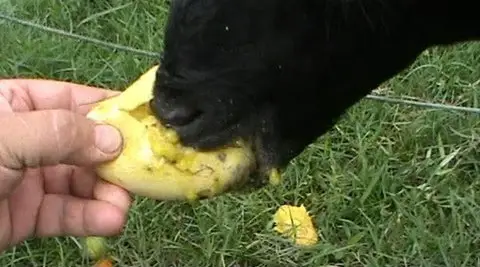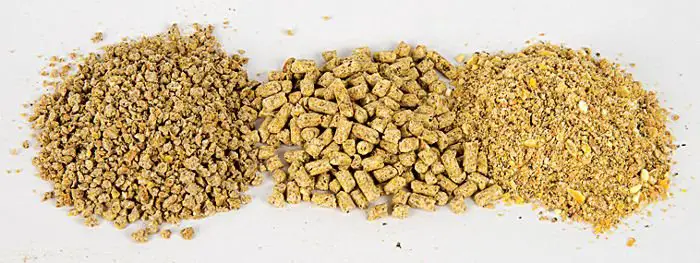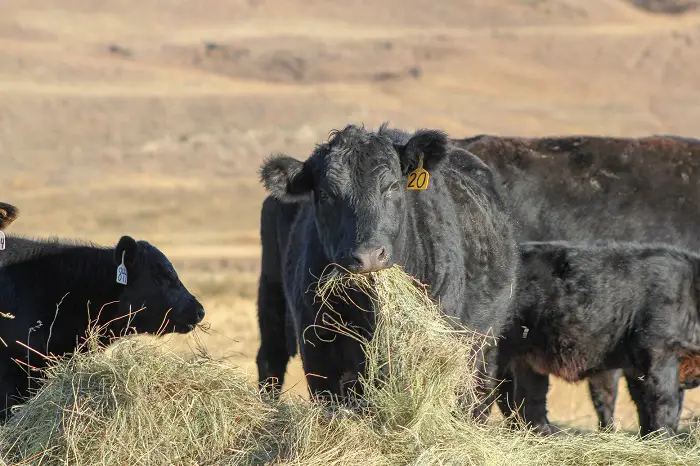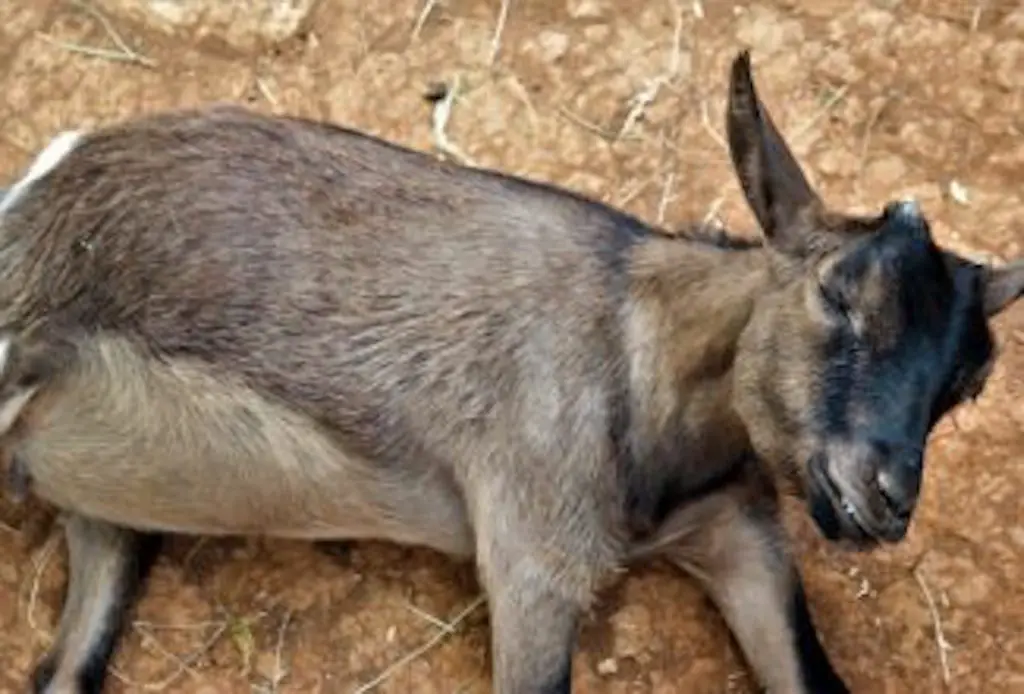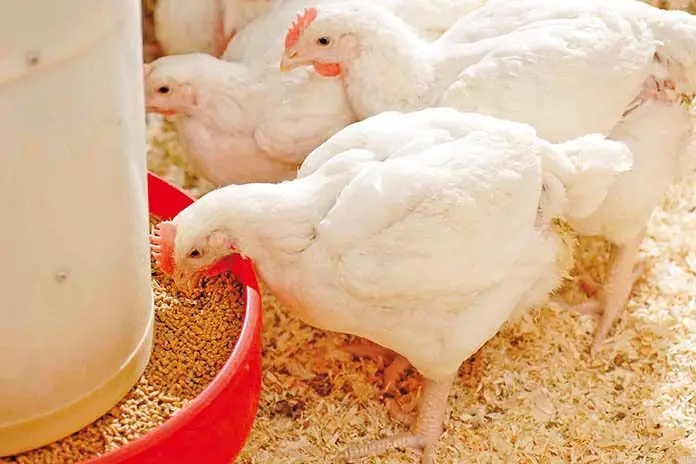Goats can eat mangoes and many other fruits. Naturally fruits are a good source for valuable nutrients not only to goats but also to other animals as well. Goats love to eat mangos including the peel. Just like many other fruits, mangos have a delicious taste to animals which makes it a favorite fruit for them.
As always mentioned too much of anything can result in negative results. Goat diet need to have a balanced proportion of nutrients that are essential for their growth and development. We shall look at the advantages and disadvantages of feeding mangos goats.
Contents
Mangos Nutritional Compositions
To further understand why goats are allowed to eat mangoes let us look at the nutritional content of the mango fruit. Generally fruits are known for their rich source of vitamins and minerals.
Mango fruits are not an exception, they are a very rich source of essential vitamins and minerals. They are a good source of vitamin A, Vitamin B components, niacin, riboflavin, pyridoxine and folic acid and many other antioxidants. Mangos also provide vitamin C, vitamin E and vitamin K which are also an important part of goat diet. These vitamins when eaten by goats play an important role in their health. Mangoes are also rich source for minerals including phosphorus, iron, copper, calcium, manganese, magnesium and potassium.
Mango leaves have been found to be a good source of roughage. Additionally, the seed of the mango fruit is also very nutritious which if eaten by goats can provide a source of energy and other antioxidants. Mangos have been found to have sugars which can boost energy levels for your goats. This explains why they are preferred to be given to goats before feeding.
Benefits Of Giving Mangos To Goats
Goats can eat mangos and they love them so much due to their delicious taste. There are many health benefits that can be derived when goats eat mangos. Below are some of the benefits.
- Mangoes are a good source of vitamin A which is essential for improving night vision for your goats. Lack of vitamin A causes deficiency disease known as night blindness.
- Mango fruit is one of the most fibrous fruits that goats can eat. The high fiber content in goats helps in boosting metabolism rates and digestion in goats.
- Vitamin C that is abundant in mangoes also helps build the immune system of the goats and hence they will hardly fall sick. The owner will enjoy low medical costs for keeping his or her goats.
- The high mineral and vitamin content in mangos helps maintain a diet that is balanced for proper growth and development of your goats. Folate is an essential element for DNA production in goats.
- Mangoes contain sugars which can boost goats’ energy levels. Additionally, mangoes are good natural de-wormers. They have a natural de-wormer called pepsin which helps to kill parasites along the digestive tract.
It is evident that mangos are very helpful and recommended for goats to eat. Mango seeds, leaves and peels are all important sources of vitamins and minerals. It is however important for us to discuss also about ways which can be used to feed mangos to goats to ensure maximum health benefits.
How To Feed Mango Leaves And Seeds To Goats
We have already mentioned that goats can eat mangos and their leaves as well. Mango leaves are recommended to be given to goats. Mango leaves are a good source of roughage and other antioxidants that are vital for improving digestion and gut health. Mango leaves can be given to goats alone without any effects. However, you may need to add other feed to balance the diet since the leaves are more concentrated with vitamins and fibers.
Mango seeds are also very healthy and recommended to be eaten by goats. Mango seed is generally large in size to be eaten by goats. Therefore to feed those to goats make sure you chop them into pieces first so that they do not choke the goats. Also you may need to crush the seed and mix it with other feeds to create a healthy diet for your goats. Mango seeds have been found to have proteins that are important minerals for growth. The peels do not have any problem as well and can be given to goats. Above all mangos should be given in treats and controlled quantities.
What To Avoid When Feeding Mangos To Goats.
Despite mangoes having many benefits to goats, there are certain things which should be avoided when feeding mangoes to goats. Always avoid overfeeding mangoes to goats as these can result in excess weight gain leading to diabetes. Mangoes have high sugar content and if goats eat them without being controlled or monitored, they may suffer from this disease. It is important to make sure that mangos given to goats are limited and mixed with other goat feeds. If goats eat too much mangos, they may also suffer from diarrhea.
Goats should not eat unripe mangos despite the minerals and vitamins they have. Unripe mangos contains many acids like oxalic acid, malic acid, citric acid, and succinic acid which gives unripe mangos a sour taste. Unripe mangos are not recommended for goats due to the harm they have on goats than good. Overconsumption of unripe mangos may results in calcium deficiency in goats which should be avoided. Lastly, mangos should be given to goats as treats only and not the main goat diet.
Can I Feed Mangoes To Other Animals
Mangos are a delicious fruit to many animals. Besides goats, cattle, horses, pigs and sheep also eat mangos but the feeding rules should be adhered to. Despite the mangos nutritional content, they should only be given to these animals as treats.
Conclusion
Goats can eat mangos among many other fruits. Mangos provide a wide range of benefits to goats and other animals due to its nutritional content. It is advisable that goat owners take precaution when feeding mangos to their goats. Uncontrolled and excessive feeding on mangos is not recommended for goats and other animals.
